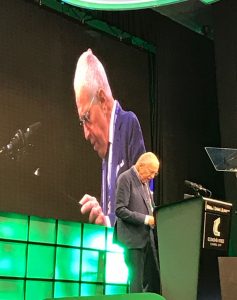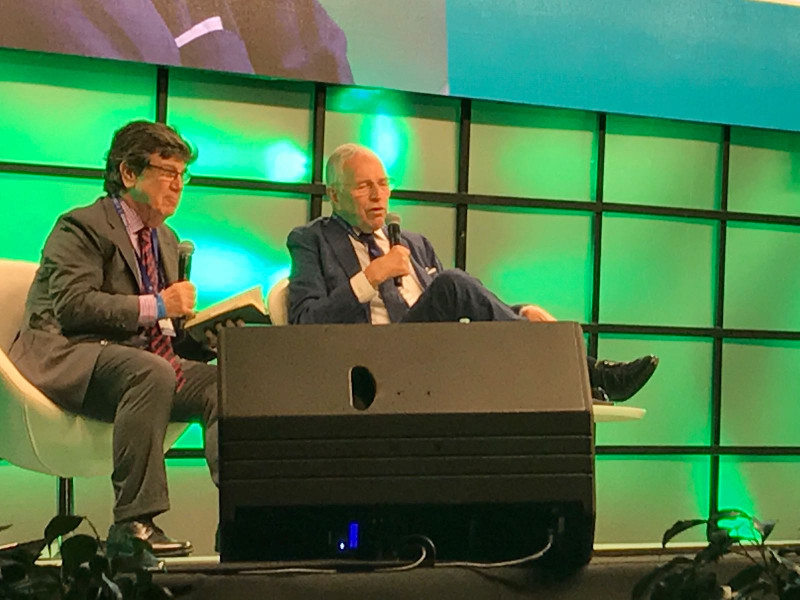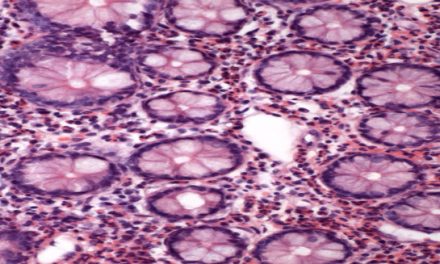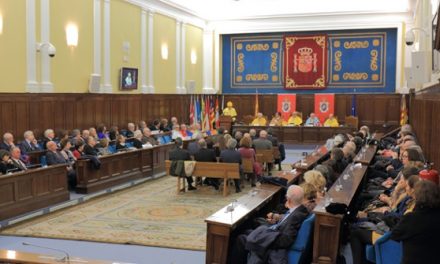“Economic development is rapidly ending with natural capital and a new green economic growth is imposed”
 Edmund Phelps, Nobel prize in Economics and honorary academician of the Royal European Academy of Doctors-Barcelona 1914 (RAED), participated in the second Green Economy Summit, held in Córdoba, Argentina, on 5 and 6 October, with the work “Saving the Environment”, in which he exposed the economic advantages of sustainable development. The session was moderated by Juan Solá, director of the Phelps Chair and the Law and Economics Center of the University of Buenos Aires, a close associate of the Academy. The summit also included the also Nobel prize in Economics and honorary member of the RAED Eric Maskin, and the full academician and president of the Institute of Interdisciplinary Research of the RAED José Ramón Calvo. The meeting was also attended by former US president Barack Obama.
Edmund Phelps, Nobel prize in Economics and honorary academician of the Royal European Academy of Doctors-Barcelona 1914 (RAED), participated in the second Green Economy Summit, held in Córdoba, Argentina, on 5 and 6 October, with the work “Saving the Environment”, in which he exposed the economic advantages of sustainable development. The session was moderated by Juan Solá, director of the Phelps Chair and the Law and Economics Center of the University of Buenos Aires, a close associate of the Academy. The summit also included the also Nobel prize in Economics and honorary member of the RAED Eric Maskin, and the full academician and president of the Institute of Interdisciplinary Research of the RAED José Ramón Calvo. The meeting was also attended by former US president Barack Obama.
Phelps stressed the need for a social conscience to support and enforce sustainable development policies that are already becoming a reality in many countries sponsored by international organizations. “Economic development is rapidly ending with natural capital and a new green economic growth is imposed, which doesn’t harm the environment”. At the same time, safeguarding the planet can’t stop our development. We have the deep need to innovate and the ability to do it”, said the Nobel laureate.
The speaker established three priorities on which global action is urgent and which can mark the future of the planet and political and social stability: the increase of the world population and its economic development, the gap between rich and poor and the fight against climate change. In order to face each of these challenges, it was necessary to raise the awareness of the citizens, the rich countries and the emerging countries. “Because sustainable development is necessary and possible”, he said. “It’s well known that today 20% of the world’s population consumes 80% of natural resources. We must be clear that this is unjust and unsustainable”, he added.
Phelps also pointed to technical solutions that also need social and political support, such as the development of clean energies or the implementation of systems to clean the air. “For a long time, the CO2 that accumulates in our atmosphere isn’t the result of natural processes, but of centuries of industrialization. Fortunately, today we have technologies to capture all this CO2 and even give it a commercial outlet, beyond the so-called CO2 market in which emissions are offset by the reforestation of deforested areas”, he explained.







